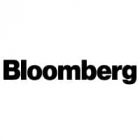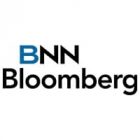- US and Indonesia in talks for critical minerals trade deal
- Indonesia largest nickel producer in the world, second largest cobalt producer
- significant domestic opposition over influence of China
Subscribe for Investment Insights. Stay Ahead.
Investment market and industry insights delivered to you in real-time.
The US and Indonesia are in talks on a potential critical minerals trade partnership to secure supply chains between the two countries, with Indonesia requesting a limited free trade deal.
Any trade agreement, but especially a free trade deal, would be a very significant development for commodity investors, so how likely is a deal?
Why a deal?
Both the US and Indonesia have motives to secure a deal.
Indonesia is the world’s largest nickel producer, producing 37% of global supply, forecast to increase to two-fifths of global supply by 2030; as well as the second largest cobalt supplier in the world, forecast to increase more than x10 by 2030.
In 2020, the government banned raw nickel ore exports but allowed the export of refined nickel products, to boost investment in processing plants by forcing companies to process and manufacture in the country — and the plan worked. By July 2023, there were 43 nickel smelting facilities in operation in the country, 28 under construction, and 24 more being planned in the country. Exports of nickel products were worth an estimated US$30 billion in 2021, an increase of almost x10 from 2013.

The government is now working to onshore an integrated nickel to EV supply chain by 2027, by encouraging electric battery and electric vehicle (EV) factories to be built in the country through export bans and government support. For example:
- an extension of two more years for automakers two more years to qualify for electric vehicle incentives, with automakers needing to commit to producing at least 40% of the content of EVs in Indonesia by 2026 to qualify
- Hyundai opened a new plant, with a US$1.55 billion investment, to produce Indonesia’s first locally assembled electric vehicle this year
- Mitsubishi plans to invest US$375.25 million in 2024 to expand its EV production capacity in the country
- Wuling Motors has invested a reported US$700 million and built a EV manufacturing plant
And there are many other possible agreements being discussed, including a US$1.8 billion investment by Toyota and US$4.7 billion by Volkswagen and partners.
“Indonesia is a producer and holder of the world’s biggest nickel reserves amounting to 21 million metric tons, so Indonesia can become a supplier for … batteries and EVs in the US”
— Joko Widodo, President of Indonesia
Subscribe for Investment Insights. Stay Ahead.
Investment market and industry insights delivered to you in real-time.
However, despite these successes, Western electric vehicle manufacturers have, so far, been reluctant to invest. This is best highlighted by Tesla’s recent decision to open a regional hub in Malaysia, not Indonesia, despite offers of tax breaks, a mining concession and reports a deal was close.
The windfall from a deal with the West would be extremely lucrative for Indonesia. BloombergNEF forecasts the cumulative value of all forms of EV sales will reach US$57 trillion by 2050.

Western worries
There are two main reasons why Western companies are reluctant to invest in Indonesia:
- influence of China in Indonesia
- to qualify for Inflation Reduction Act tax credits, processing and/or extraction of critical minerals used must be from the US or a country with a free trade agreement — not a “foreign entity of concern”
The US Inflation Reduction Act, 2022, announced investments of more than US$365billion in energy security and climate change programs, is expected to stimulate about US$3.5 trillion in private capital spending on the energy transition
The concern for the West is finding enough secure supply of critical minerals to meet the expected increase in demand due to the energy transition. One estimate by the IEA forecasts demand is set to grow x3.5 by 2030.

The terms of the Inflation Reduction Act hope to boost domestic critical mineral extraction and processing by cutting out supply from non-domestic sources, which means that supply is tightening just as demand is expected to dramatically increase.
It’s estimated US FTA partners account for only 9.3% of global nickel production, without any of the top three exporters (Indonesia, the Philippines, and Russia).
A free trade deal between Indonesia and the US would allow Indonesia access to domestic US tax credits and give US electric automakers access to 37% of the world’s supply nickel and the second largest cobalt supplier.
Subscribe for Investment Insights. Stay Ahead.
Investment market and industry insights delivered to you in real-time.
What would a deal look like?
The first step to closer trade ties between the US and Indonesia (and rest of the region) was the US-led Indo-Pacific Economic Framework (IPEF) in 2022, that worked to deepen economic engagement in the region.
In November 2023, the US and Indonesia announced a new defense cooperation agreement to secure defense and trade agreements.
For the US, these new pacts work to shore up defense alliances in the region, and for Indonesia, it helps to hedge and leverage alliances between the US and China.
A potential template for a deal is the recent agreement between Japan and the US in March 2023, that gave Japanese automakers access to US EV tax credits, while prohibiting bilateral export restrictions on lithium, nickel, cobalt, graphite and manganese.
A deal with Indonesia would focus on nickel, cobalt, aluminium and copper.
The potential of such a deal was put in stark relief when Ford signed an agreement with an Indonesian unit of nickel miner Vale and China’s Zhejiang Huayou Cobalt to partner in a US$4.5 billion HPAL plant in Indonesia.
Opposition to a US-Indonesia deal
The primary challenge to any free trade deal between the US and Indonesia is the influence of China.
One report estimates China has invested US$30 billion in Indonesia’s nickel industry. In this year alone, China has pledged more than US$65 billion investment into Indonesia to strengthen the countries’ economic and political ties.
In October, a bipartisan group of nine US senators, sent a letter “to express concern regarding media reports of a potential critical minerals “limited free trade” agreement between the United States and Indonesia.”
The senators highlight concerns over domestic sourcing opportunities, as well as trade, labor and environmental concerns.
“Indonesia now has three plants capable of producing 164,000 metric tons/year of Mixed Hydroxide Precipitate (MHP), a nickel intermediate suitable for battery production, and over 25 more such plants have been proposed. All but three involve PRC companies”
— The Honorable Katherine Tai, Concerns Regarding a Potential Critical Minerals Trade Agreement
Subscribe for Investment Insights. Stay Ahead.
Investment market and industry insights delivered to you in real-time.
And there has already been calls by US senators for an investigation into Ford’s plan to invest and partner in Indonesia.
Indonesia’s president has promised to clean up the country’s nickel industry, monitoring of mining standards and including nickel shipments in the government’s online tracking system from 2024.
However, as we’ve highlighted in our analysis — Nickel’s environmental challenge offers opportunity for the West — carbon dioxide emissions and tailings from HPAL plants will be trickier for the government to resolve.
Also, any trade deal with Indonesia would limit the country’s contested use of export bans, a cornerstone of it’s recent industrial policy. But, Indonesia has announced this year that it is in talks with three unnamed countries to create an OPEC-style nickel cartel.
Made in US
Eagle Mine is the only operating nickel mine in the US, with plans to close by 2026. And there are no nickel smelters.
A proposed nickel mine by Talon in Minnesota has received US$20.6 million by the Department of Defense, after a US$115 grant by the Department of Energy to help build Talon Metals’ ore processing plant in North Dakota.
With this funding, Talon will be able to accelerate our efforts to discover domestic sources of battery grade nickel and help ensure that the United States is not dependent on Russia, China or Chinese companies operating in countries like Indonesia for nickel that is needed in both defense platforms and clean energy systems” — Talon Metals, Department of Defense and Talon sign agreement to support domestic nickel exploration
And a global network worth hundreds of billions of dollars of investments is taking shape from Canada to Australia, from mining to processing to battery manufacturing, on the back of the Inflation Reduction Act. Just a few examples:
- an agreement between Vale and GM to supply 25,000 metric tons per year of contained nickel from Vale’s proposed plant at Bécancour, Canada
- General Motors investing US$650 million to develop the Thacker Pass mine in Nevada
- Japan’s Sumitomo Metal Mining is considering producing cathode battery materials in the US to meet EV demand
Subscribe for Investment Insights. Stay Ahead.
Investment market and industry insights delivered to you in real-time.

For further analysis:
A deal with Indonesia would significantly undermine US efforts to produce a domestic, secure supply of nickel — with a significant knock-on effect across the global critical minerals and mining industry.
Conclusion
Will the US sign a free trade deal with Indonesia?
We believe there will be significant pressure, especially from automotive companies who are eager to secure a large enough supply critical minerals to maintain affordable prices, to sign a deal.
But, ultimately, there will not be a limited free trade deal on critical minerals between the two countries.
US politics, especially over China’s influence, will most likely be the biggest barrier to any comprehensive deal, as well as the impact of such a deal on the financial promises of support through the Inflation Reduction Act to companies and allies across the world who have already begun to make their investments accordingly.
However, no deal will have it’s own impact, in particular raising costs on one of the world’s largest supplies of critical minerals, just as demand is expected to soar. And, giving China further leverage in Indonesia.
This is why we expect significant efforts at closer relations between Indonesia and the US, as it is in both their expressed interests to reduce their dependence on China. This is likely to include further tightening of defense agreements and expansion of the Indo-Pacific Economic Framework (IPEF) over trade deals.
Of course, circumstances could change, in particular with elections in both countries in 2024.
But, while we do not believe a deal is likely, we also do not expect a definitive answer to the question “will there be a deal?” for what will likely be years, as both countries continue to work on a potential areas of agreement, if only to leave the door open — just in case — to a deal.
Subscribe for Investment Insights. Stay Ahead.
Investment market and industry insights delivered to you in real-time.















